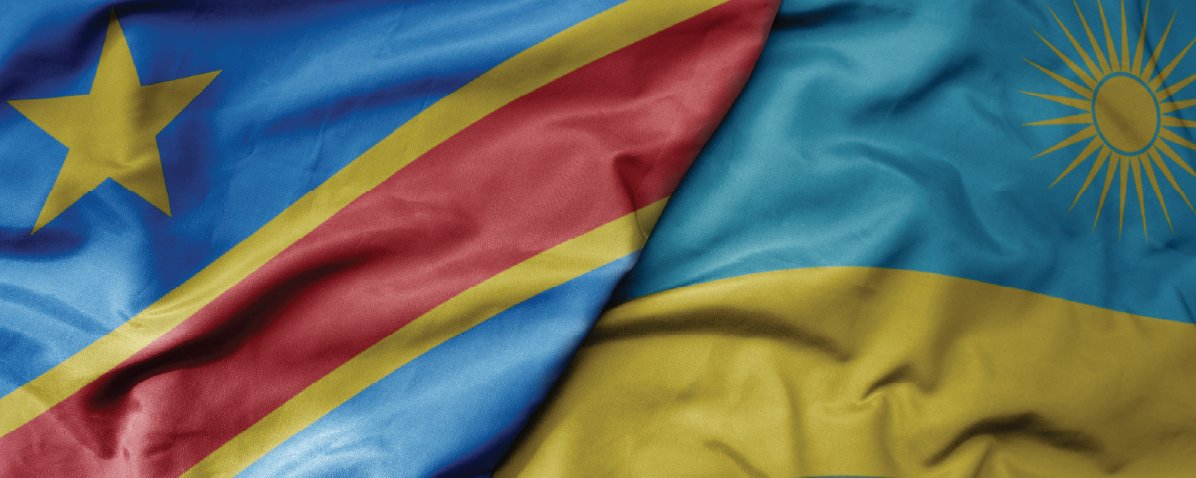A nation must think before it acts.
The June 27, 2025, signing of a Peace Agreement between the Democratic Republic of the Congo (DRC) and the Republic of Rwanda in Washington, DC and the Declaration of Principles, agreed to by representatives of the DRC government and representatives of the Congo River Alliance/March 23 Movement (AFC/M23) on July 19, 2025, in Doha, Qatar were much ballyhooed by international organizations and the media. US President Donald Trump, a week before the DRC-Rwanda signing ceremony, posted on his Truth Social account that the signing was “a Great Day for Africa and, quite frankly, a Great Day for the World!”
While both of the aforementioned initiatives are promising, three decades of hostilities and failed peace efforts demonstrate that no single agreement will resolve the DRC’s deeply entrenched conflicts. In fact, events in the DRC after the signings already indicate that peace is as elusive in this troubled region as ever.
According to Martha Ama Akyaa Pobee, Assistant Secretary General for Africa in the UN Department of Political and Peacebuilding Affairs and the Department of Peace Operations, in an August 22, 2025, UN meeting, “the evolution of the security situation on the ground has not matched the progress achieved on the diplomatic front.” The number of civilian casualties has risen dramatically, conflict-related sexual violence persists, and the forced recruitment of children as soldiers continues. “Despite the relative lull in direct clashes,” Pobee said, “the parties continue to deploy troops and transfer weapons along the front lines.” Since April, the conflict in North Kivu Province and the M23 rebels have continued to make incremental territorial gains in Masisi, Walikale, and Lubero Territories. During the period of July 9 to 21, at least 319 civilians—including forty-eight women and nineteen children—were killed by the rebels, who are still thought to be backed by members of the Rwanda Defense Force.
The increase in violence in eastern DRC has led to the United States levying sanctions against entities accused of stoking violence and trafficking critical minerals in the eastern DRC. The ongoing violence in the region significantly impacts the minerals deal between the United States and the DRC, which will require sustained US engagement, effective leadership on the part of the DRC government, and independent monitoring and community consultation if it is to be implemented successfully. None of this is possible, however, until peace and stability are restored to the DRC’s eastern region, something that is uncertain at present. In addition, there is the risk that focusing on securing strategic minerals could attract additional actors and interests to the region, further complicating negotiations.
While the United States’ involvement in efforts to settle the conflict has been generally welcomed, and the US-brokered peace agreement between the DRC and Rwanda signals a degree of diplomatic progress, there remains concern about implementing the agreements and their long-term effectiveness. First, there is the withdrawal of the Southern Africa Development Community peacekeeping forces from the DRC, taken in conjunction with the fragility of the DRC government.
Even if Rwanda complies with the terms of the US-brokered peace agreement and ceases support for M23, the security situation in eastern DRC will not change unless M23 agrees to disarm and reintegrate. While the Doha agreement between the DRC and M23 stated that DRC authority should be restored in all territories, the rebels still hold key territory in the east, including the strategically important towns of Goma and Bukavu, both of which are rich in minerals and central to cross-border trade. M23 has shown few signs of giving in and has demanded problematic political concessions, such as amnesty for its fighters and resumption of state services in areas under its control. Such an agreement could incentivize other armed groups in the DRC to increase violence in pursuit of their goals. Recent attacks in Beni and Lubero territories of North Kivu province by the ISIS-backed Allied Democratic Forces (ADF) killed at least fifty-two civilians. Kidnappings, looting, and destruction of property accompanied the ADF violence. ADF is one of several militias competing for land and resources in eastern DRC.
What, in reality, are the hopes for a true and lasting peace in the DRC’s mineral-rich, but troubled eastern region, or in Africa’s Great Lakes region writ large, for that matter?
Three factors are impeding the achievement of sustained peace.
- There is no credible military deterrent to compel M23 or the Rwandan Defense Force (RDF) to withdraw from contested territory.
- The DRC government is politically and strategically unwilling to grant concessions to the M23 rebels.
- There is currently no mechanism to ensure RDF withdrawal from contested border areas, which is complicated by the presence of forces from Uganda and Burundi in the region.
According to Africa Security Analysis, a Swedish company that provides risk analysis and security updates on Africa, the situation in eastern DRC is highly volatile and unpredictable. Recent events indicate a growing crisis that threatens the stability of the Great Lakes region. Lacking effective containment of all the armed players and alliances and constructive political dialogue by all parties, the area might be facing a prolonged period of violence and eventual fragmentation.
Achieving lasting peace and stability in the DRC and the Great Lakes region will require more than highly publicized signing ceremonies. It requires a sustained commitment from all parties, including international mediators, to dedicate time and resources to confidence-building measures, enforcement mechanisms, and community engagement that foster local buy-in and address the conflict’s root causes.
Until all parties come to this realization and begin to walk the talk, peace will remain out of reach.
Image: Adobe Stock



